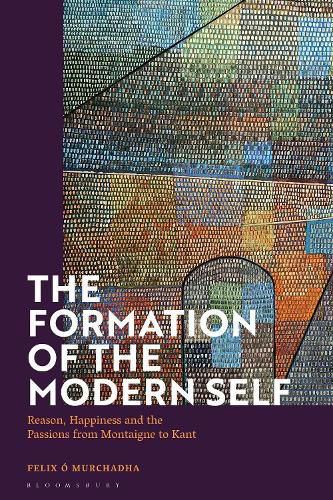Readings Newsletter
Become a Readings Member to make your shopping experience even easier.
Sign in or sign up for free!
You’re not far away from qualifying for FREE standard shipping within Australia
You’ve qualified for FREE standard shipping within Australia
The cart is loading…






Charting a genealogy of the modern idea of the self, Felix O Murchadha explores the accounts of self-identity expounded by key Early Modern philosophers, Montaigne, Descartes, Pascal, Spinoza, Hume and Kant. The question of the self as we would discuss it today only came to the forefront of philosophical concern with Modernity, beginning with an appeal to the inherited models of the self found in Stoicism, Scepticism, Augustinianism and Pelagianism, before continuing to develop as a subject of philosophical debate.
Exploring this trajectory, The Formation of the Modern Self pursues a number of themes central to the Early Modern development of selfhood, including, amongst others, grace and passion. It examines on the one hand the deep-rooted dependence on the divine and the longing for happiness and salvation and, on the other hand, the distancing from the Stoic ideal of apatheia, as philosophers from Descartes to Spinoza recognised the passions as essential to human agency.
Fundamental to the new question of the self was the relation of faith and reason. Uncovering commonalities and differences amongst Early Modern philosophers, O Murchadha traces how the voluntarism of Modernity led to the sceptical approach to the self in Montaigne and Hume and how this sceptical strand, in turn, culminated in Kant’s rational faith.
More than a history of the self in philosophy, The Formation of the Modern Self inspires a fresh look at self-identity, uncovering not only how our modern idea of selfhood developed but just how embedded the concept of self is in external considerations: from ethics, to reason, to religion.
$9.00 standard shipping within Australia
FREE standard shipping within Australia for orders over $100.00
Express & International shipping calculated at checkout
Charting a genealogy of the modern idea of the self, Felix O Murchadha explores the accounts of self-identity expounded by key Early Modern philosophers, Montaigne, Descartes, Pascal, Spinoza, Hume and Kant. The question of the self as we would discuss it today only came to the forefront of philosophical concern with Modernity, beginning with an appeal to the inherited models of the self found in Stoicism, Scepticism, Augustinianism and Pelagianism, before continuing to develop as a subject of philosophical debate.
Exploring this trajectory, The Formation of the Modern Self pursues a number of themes central to the Early Modern development of selfhood, including, amongst others, grace and passion. It examines on the one hand the deep-rooted dependence on the divine and the longing for happiness and salvation and, on the other hand, the distancing from the Stoic ideal of apatheia, as philosophers from Descartes to Spinoza recognised the passions as essential to human agency.
Fundamental to the new question of the self was the relation of faith and reason. Uncovering commonalities and differences amongst Early Modern philosophers, O Murchadha traces how the voluntarism of Modernity led to the sceptical approach to the self in Montaigne and Hume and how this sceptical strand, in turn, culminated in Kant’s rational faith.
More than a history of the self in philosophy, The Formation of the Modern Self inspires a fresh look at self-identity, uncovering not only how our modern idea of selfhood developed but just how embedded the concept of self is in external considerations: from ethics, to reason, to religion.